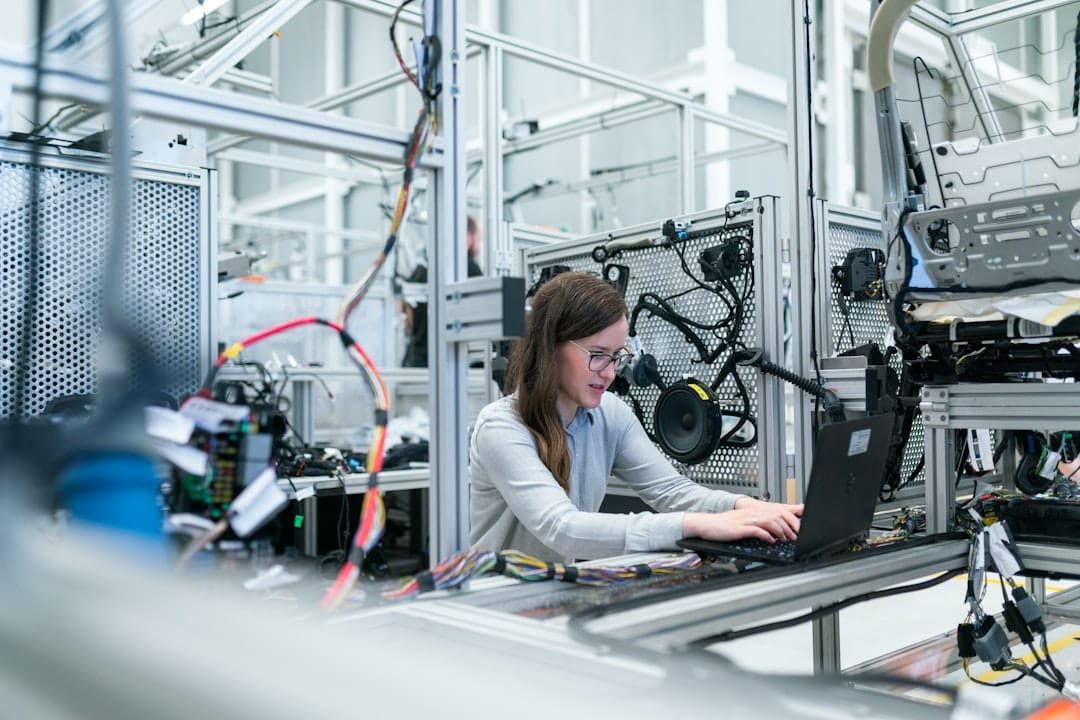Tech for good is a bad idea
Too click-bait? For-good companies should be about good, not tech

Technology has been improving for a long time and while it’s easy to get caught up in the hype it’s important to remember that technology is really just a tool. It doesn’t create outcomes on its own, it helps people create outcomes. You wouldn’t praise a carpenter’s hammer for building a chair now would you?
Real impact, real results, lie in the outcomes and the people who drive change. We shouldn’t centre conversations around ‘tech’, we should focus on the ways in which people use it to make people’s lives better.

Tech for Good
I really don’t like the term ‘tech for good’ (hence this post). It puts the wrong thing first. It encourages people to talk about the technology companies build to do good, rather than the good they may or may not be doing.
This is never how ‘for-good’ companies succeed. Companies that do good solve a problem with technology, it’s not about the technology.
Don’t get me wrong, ‘tech companies’ that do good are great, this is the distinction I'm trying to make, they just don’t help anyone by talking about being a ‘tech for good’ company.
Consider Tesla. It’s a tech company, a sustainability company, and arguably a ‘for-good’ company too. From the beginning Tesla put the problem first - transitioning from a hydrocarbon economy - and then came up with a solution: affordable sustainable transport. They used tech to get there. It’s not a tech for good company - it’s a sustainable transport company that uses tech and ends up doing good.
You might think, "Well, that is my definition of a tech for good company - a company that uses tech to do good." and that’s good and fine but my argument is it puts the cart before the horse.
People read it and think they need to build software, circuits, robots, or AI, and then try to fit the technology to a problem. This doesn’t work. They say more than 9 out of 10 startups fail, and I bet this is a big reason why.

Examples of failure
Do you recognise any of these names?
- Better Place
- Solyndra
- A123 Systems
- Coda Automotive
- Abound Solar
- Ener1
- H2GO Power
- Better World Books
Probably not. These are companies that tried to fit technology to a problem in sustainability and missed the point. If they’d done any user research or market validation, they’d have known it was a terrible idea.
Then there are more famous failures like Segway, Google Glass, Theranos, Quibi, and Juicero. These are consumer goods companies that started with technology and then found a problem to solve it. You could call them ‘tech for consumers’ companies, they are what happens when you put tech first.
Good first, tech second
Try to do good first and see if technology can help you. Companies actually doing good don’t talk about being tech-for-good companies, they talk about the good they’re doing.
If you’re a tech company that, let’s say, connects homeless people to restaurants with leftovers, you don’t talk about your amazing app - you talk about the leftovers and who's getting them.
‘Tech for good’ is an arrogant way of selling yourself, and if you ask me, it signals that you don’t know what problem you’re really solving.
I have a friend attending the VivaTech conference in Paris this week who I’ve asked to keep an eye out for ‘tech for good’ companies. If there was ever a market for shorting start-ups, I’d start there. This sounds to me like ‘tech bros’ with (hopefully) good intentions trying to fit their cool ideas to problems.
If you look for the companies that just do good they probably don’t have the same shine at a tech conference. Their people aren’t machine learning developers, they’re busy doing specific, impactful work. (I like machine learning developers by the way, the point is that applying it to something is the good thing, not just being the shiny thing).

Measuring impact is the real test for good
So how can you tell the difference? If start ups are getting funding and building these products calling themselves ‘tech for good’ and they’re out they’re doing something, how can you tell the ones that will fail from the ones that will succeed?
How can you tell the ones who say ‘tech for good’ in their marketing from the ones who actually use tech, to do good? Well, ask them how they measure their success.
It's not enough to declare a technology as 'for-good' just because it has potential. We need to be able measure its impact. For example, if a tech company uses innovative methods to mass-produce food for refugees, the focus should be on the number of families served, and the improvement in their lives, not the AI models they use in supply chains.
If they went to governments or NGOs looking for funding and started talking about regression model improvements or AI efficiency and confidence scores, they’ll get nowhere, but if they can show numbers that prove the amount of people they’ve fed and the affect it has, they’ll get the money.
Example of success
Zipline is my favourite example of this. I’ve written about them dozens of times before. "They are a logistics company that serve local communities on a global level."
They started by looking at the problem hospitals in Rwanda had with the shelf life of blood. It wouldn't last long enough when it was needed to be delivered to remote areas of the country. This was leading to very high mortality rates. A very big problem.
They went to the hospitals, looked at the remote locations and the existing methods of transport, and then started to think of solutions. They ended up using tech (fixed wing UAV drones) to solve the problem.
They used tech for good and back in the day didn't talk much about their drones (only really to the robotics nerds like me). Instead they talk about the millions of units of blood they’ve delivered.

Focus on what matters
If you’re actually for good it’s never the tech that matters. In the end, 'tech for good' should be about the people and the outcomes, not the technology itself. The tools are important, but they are just that - tools.
The real drivers of change are the individuals and organisations leveraging these tools to create meaningful, positive outcomes. By focusing on measurable impacts 'tech for good' can become ‘For good’ which I think is more poignant.
